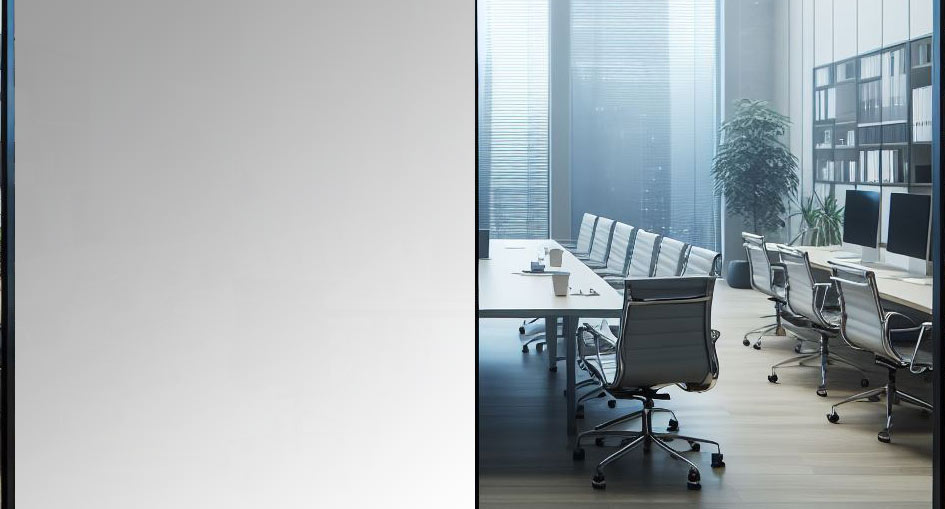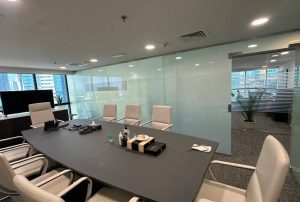
PDLC (Polymer Dispersed Liquid Crystal) technology has brought significant advancements in the field of smart glass and smart film. These innovative materials offer a range of benefits, but they also come with some drawbacks. Understanding both the advantages and disadvantages can help you decide whether PDLC smart film or smart glass is the right choice for your project.
Advantages:
- Privacy Control: PDLC smart film and glass can switch between transparent and opaque states, offering instant privacy when needed. With a simple flick of a switch or a tap on a smartphone, you can control the opacity of the glass, making it ideal for office partitions, meeting rooms, bathrooms, and more.
- Energy Efficiency: Smart glass can help reduce energy consumption by blocking sunlight and UV rays, which can help lower cooling costs in the summer and heating costs in the winter. By regulating the amount of sunlight entering a building, smart glass can also help maintain a comfortable indoor temperature.
- Enhanced Security: Smart glass can serve as an additional security measure, providing an extra layer of protection against break-ins and vandalism. When in opaque mode, smart glass prevents people from seeing inside, making it difficult for intruders to assess the contents of a building.
- Aesthetics: PDLC smart film and glass offer a sleek, modern look that can enhance the aesthetics of any space. With the ability to switch between transparent and opaque states, smart glass can create dynamic and visually appealing environments.
- UV Protection: PDLC smart film and glass block up to 99% of harmful UV rays, helping to protect furniture, flooring, and artwork from fading and damage.
- Customization: Smart glass can be customized to fit a wide range of shapes and sizes, making it suitable for almost any application. Whether you need a large partition for a conference room or a small window for a bathroom, smart glass can be tailored to meet your specific requirements.
Disadvantages:
- Cost: Smart glass can be significantly more expensive than traditional glass, making it a costly option for some projects. The price of smart glass depends on factors such as size, thickness, and the complexity of the installation.
- Installation Complexity: Installing smart glass requires specialized skills and equipment, which can add to the overall cost of the project. Additionally, retrofitting existing windows with smart glass can be challenging and may require extensive modifications to the building.
- Maintenance: While smart glass requires minimal maintenance, it can be more difficult to clean than traditional glass. Dust, fingerprints, and smudges can be more visible on smart glass, requiring regular cleaning to maintain its appearance.
- Limited Transparency Control: While smart glass offers varying levels of opacity, it may not provide complete privacy in all situations. In some cases, ambient light may still pass through the glass, reducing its effectiveness as a privacy solution.
- Reliability: While PDLC smart film and glass are generally reliable, they can sometimes malfunction or fail to switch between transparent and opaque states. This can be inconvenient and may require repairs or replacement.
In conclusion, PDLC smart film and smart glass offer numerous benefits, including privacy control, energy efficiency, enhanced security, and aesthetics. However, they also come with some drawbacks. Before investing in smart glass or smart film, it’s essential to weigh the pros and cons to determine whether it’s the right choice for your project. And the most important also to choose a reputable PDLC smart film or smart glass supplier.



